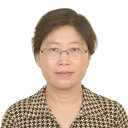Juglanin ameliorates UVB‑induced skin carcinogenesis via anti‑inflammatory and proapoptotic effects in vivo and in vitro.
Ključne riječi
Sažetak
Ultraviolet (UV) radiation induces skin injury, and is associated with the development and formation of melanoma, which is a highly lethal form of skin cancer. Juglanin is a natural product, which is predominantly extracted from Polygonum aviculare, and is considered a functional component among its various compounds. Juglanin has been reported to exert marked protective effects in various diseases via the inhibition of inflammation and tumor cell growth. The present study aimed to explore the effects of juglanin on human skin cancer induced by UV and to reveal the underlying molecular mechanism. In the present study, immunohistochemical analysis, western blot analysis, RT-qPCR analysis and flow cytometry assays were mainly used in vivo and/or in vitro. The results indicated that in mice, UVB exposure increased susceptibility to carcinogens, and accelerated disease pathogenesis. Conversely, juglanin was able to ameliorate this condition via inhibition of inflammation, suppression of cell proliferation and induction of apoptosis via p38/c‑Jun N‑terminal kinase (JNK) blockage, nuclear factor (NF)‑κB inactivation and caspase stimulation in vivo. In addition, in vitro, the present study demonstrated that treatment of UVB‑stimulated B16F10 melanoma cells with juglanin resulted in a dose‑dependent decrease in cell viability, as well as increased apoptosis via the upregulation of caspase expression and poly (ADP‑ribose) polymerase cleavage. In addition, juglanin markedly attenuated p38/JNK signaling, inactivated the phosphoinositide 3‑kinase/protein kinase B pathway and suppressed UVB‑induced NF‑κB activation. Taken together, these results indicated the possibility of applying juglanin in combination with UVB as a potential therapeutic strategy for preventing skin cancer.


